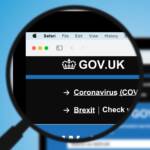Continued cooperation between the UK and EU is essential to creating a secure digital identity trust framework – despite no longer being part of the EU.
That’s according to Rayissa Armata, head of regulatory affairs at IDnow, who has weighed in on the potential challenges that the new framework will face.

DCMS rolled out a beta version of framework in June, setting out the government’s vision for the rules governing the future use of digital identities. By offering live testing in the market, service providers are now able to certify to the Framework scheme. To date, the framework offers three applicable use cases in three market sectors: Right to Work, Right to Rent, and DBS (Criminal Background Check).
“This will allow multiple stakeholders, service providers and the end user access to digital services with the added benefit of having a robust and secure certification and framework from which to operate,” said Armata. “At the same time, live market testing will allow other sectors to observe and plan for new certification schemes within the UK Framework.
Room for improvement
In terms of challenges,Armata noted that while both the UK and EU are following digital identity initiatives, they are cooperating throughout the process through public and private involvement. She added that while interoperability is the aim of both initiatives through open standards, the results have yet to be shared.
If you liked this content…
“The approach to interoperability and the requirements for certification will be different within the UK framework compared to its EU counterpart,” she said. “The UK Framework is allowing for multiple certification schemes based on various public and private sectors. The EU framework is intended to offer one certification scheme with input from the European Cyber Security Agency (ENISA) for the wallet, which will be issued by the union’s individual member states. One initiative aims to offer interoperability through a selection of standards and certification schemes while the other aims to do so via only one scheme.
“There are benefits and drawbacks to both frameworks and since both initiatives are in testing and draft phases, there is room for improvement and continued contributions.”

However, Armata believes that the UK is on track to “offering a secure digital identity that is based on upholding a user’s data privacy, offering greater control over users’ personal data and providing greater options and better service in applications for both the public and private sectors.”
She said: “Like the EU initiative, it is still in draft and testing phase. The process is new, so there will be a need for further alignment. Continued cooperation between the UK and EU is essential from both the public and private sectors.”
A recent survey shows that 87 percent of the UK public support the idea behind the digital identity framework.








